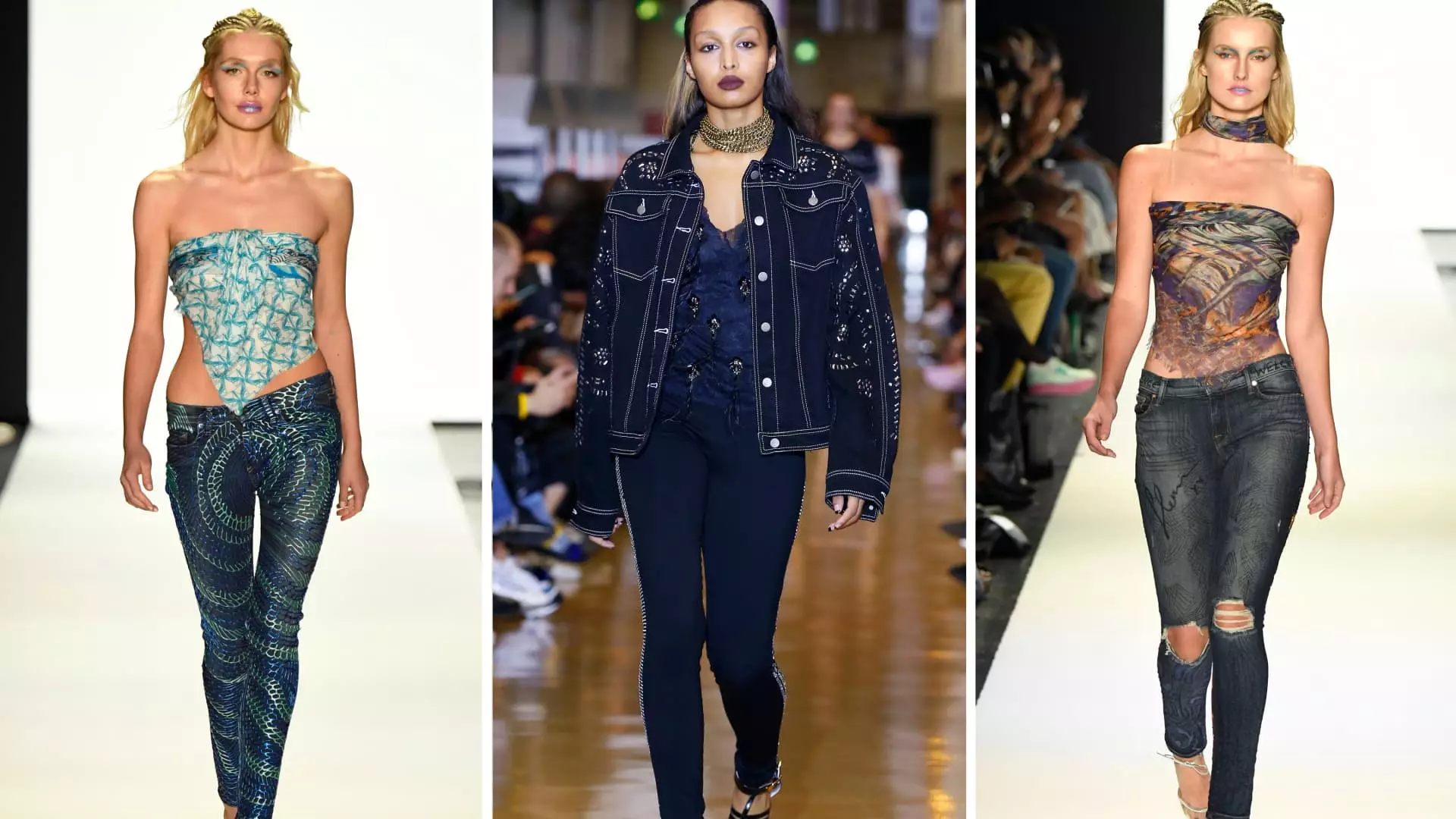The fashion industry is often a pendulum of trends, oscillating between styles and silhouettes, and in recent months, it seems that the much-maligned skinny jean is once again vying for a spot in the hearts of consumers. As the cycle of fashion continues, this iconic piece of clothing appears to be making a gradual comeback, driven by a myriad of factors including runway shows, social media influencers, and shifting consumer tastes.
Over the past few years, the fashion landscape has been incredibly influenced by platforms like Instagram and TikTok. Gen Z influencers, in particular, have a reputation for driving market trends at a lightning pace. A notable instance occurred when Alix Earle, a TikTok star, showcased an exclusive pair of skinny jeans from denim brand Frame. This debut caused a noticeable spike in public interest, demonstrating the powerful reach of social media in shaping current fashion narratives. Janine Stichter, a retail analyst, noted that keyword searches for skinny jeans surged significantly after Earle’s reveal, indicating that consumer interest is indeed alive.
The instantaneous nature of social media contributes to the rapid fluctuation of trends. Consumers increasingly find themselves influenced by the styles that they see their favorite influencers sporting. As it stands, when celebrities or public figures like Earle wear a specific item, it can generate a fervor that leads to increased sales, transforming what might have once been deemed outdated into a hot commodity. This phenomenon raises a pertinent question: how much of our purchasing behavior is dictated by what we see online?
The skinny jeans revival has roots in the recent runways of major fashion labels. Designers such as Prada and Isabel Marant have reinterpreted skinny jeans, introducing variations that differ significantly from their predecessors. Today’s offerings lean towards slimmer silhouettes crafted from more tailored, varied textiles, often featuring plaid patterns rather than the singular solid colors that characterized earlier versions. This pivot represents a broader conceptual shift in how skinny jeans can be worn, catering to contemporary fashion tastes while doing away with previous restrictions that defined the style.
Shawn Grain-Carter, a fashion professor, emphasizes that the modern iteration of skinny jeans does not necessarily cling tightly to the body. Unlike the jeggings of the early 2010s, which left little to the imagination, the updated designs allow for more fluidity and comfort, potentially appealing to a wider audience. As these fashion-forward variations emerge, there is room for consumers to redefine their perceptions and comfort levels with skinny jeans.
From a retail standpoint, the murmurs of a skinny jeans resurgence have not gone unnoticed. Major brands such as American Eagle and Reformation are observing shifts in consumer searches, suggesting that consumers may be receptive to reintegrating this classic style into their wardrobes. Jen Foyle of American Eagle highlights the importance of flexibility in a rapidly changing market, stating that retailers must be nimble and responsive to emerging trends.
As the retail industry gears up for the summer and fall seasons, there remains a sense of optimism surrounding the potential for a skinny jeans influx. A flourishing interest in these styles has proven beneficial not only for jeans but also for the complementary apparel and footwear markets. Indeed, clothing trends often inspire shifts in other product categories, and as the demand for skinny jeans rises, so too does the need for new footwear and tops to match.
While it may feel as though consumers must choose between skinny jeans and the current trend of loose-fitting styles, industry insiders argue for a more inclusive approach. Michelle Gass, CEO of Levi Strauss, underscores that there is room for multiple styles in a person’s wardrobe. The modern consumer is adept at blending different looks to match their mood and the occasion, reflecting a broader shift from rigid fashion rules to personal expression.
In a world where trends are continually evolving, the idea that one style must dominate the market is increasingly antiquated. Individuals are more inclined to curate their wardrobes with various styles, mixing skinnies with looser fits as they see fit. As such, regardless of how the popularity of skinny jeans may ebb and flow, their existence alongside other styles will only enrich the collective wardrobe of consumers, ensuring that fashion remains a dynamic and personal domain.
While the fashion industry will continue to witness fluctuations in trends, the potential revival of skinny jeans illustrates the beauty of cyclical fashion. Both shoppers and retailers should remain open-minded and adaptable, as the lines of fashion become ever more blurred, allowing for myriad expressions of individual style.

